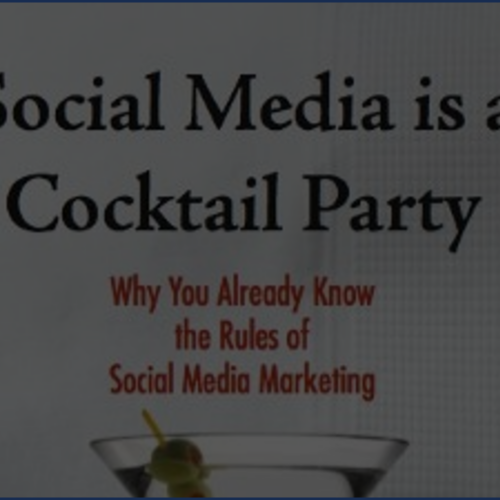17 Jul Why Content Marketers Can’t Ignore Google+
Content has quickly proven to be a must-have weapon in every marketer’s arsenal. In addition to serving as a way to leverage your knowledge and develop your reputation as a thought leader, content reigns supreme for SEO. Though, this was not always the case. Google’s PageRank algorithm has revolutionized the online world. Any Google algorithm update results in subsequent panic, followed by hundreds of guides to gaming the system. The latest iteration of the algorithm, codenamed Penguin, emphasizes social and quality content, and marketers must ensure that their strategy follows suit.
How SEO Used to Work
In order to get their site at the top of search results, marketers utilized a variety of tactics, some of them legally dubious (or “black hat”, in SEO parlance). This was especially important during the early days of the Internet when users were still learning how to parse through search results, and most often clicked on the top result. Sites did what they could to get to the top and be seen.
Before any of us knew better, Google included, sites engaged in keyword stuffing, hidden text, and link farming, among other practices, to artificially boost search rankings. Content was important, as were keywords, as these boosted you in search results and helped you get some backlinks to your site. The more reputable the sites that are linking to you, the better your site’s ranking in search engine results. But with so many “hacks” to improve SEO, the connection between a site’s ranking and the quality of that site’s content began to erode over time.
SEO building methods and black hat tactics have served as a quick fix for many, but are not sustainable in the long term. Google penalizes sites that are cheating the algorithm, and updates its algorithm often enough that even those who are following the rules can be adversely affected. Google algorithm updates force SEO strategy to continuously evolve.
The New SEO
In an effort to let rankings more accurately reflect a site’s performance, popularity, and credibility, Google has made some adjustments. Keywords, headlines, and body text remain important, as do backlinks. Low-quality backlinks, keyword stuffing, and other methods will negatively affect your rank. And content takes an even more prominent role in your ranking. As always, your content and site copy should be aligned with the product or service you offer, and relationship building for quality backlinks remains a valuable strategy.
So, what’s changed? Google has worked social signals into its algorithm. This means that the general sentiment of Internet users with regard to your content is factored into your rank. Google is measuring shares, mentions, and overall engagement on social networks. This means your content and social following is more important than ever. Run of the mill content filled with keywords will no longer do the trick. Instead, is your content valued across the web? Are people reading it and sending it to their friends? Is it useful? Is the author credible? These are the questions you have to consider when developing your content strategy, as it will directly affect your SEO, and Google is making sure that using its tools isn’t something marketers can avoid.
Google Author Rank
While PageRank is Google’s method for ranking web pages, Author Rank is its system for scoring writers and content creators. Similar to SEO rankings for sites and pages, authors will now have an associated ranking based on a few contributing factors, including, but not limited to:
- Social sharing of your Google+ posts
- Quality of backlinks to your content
- Interactions with your content (comments and shares)
- Timely and topical content
- Reputation and authority on other social networks
- PageRank
Google will be assessing reputation, authority, and the general reception of content across social media to determine an author’s value. This encourages writers to make sure their online presence is streamlined and connected across all social networks and blogs to which they contribute, strengthening their online presence. As a content marketer, your writing staff should be set up with Google Authorship as should any guest bloggers you invite to post. The Authorship is just one piece of the puzzle, however. You still want to be writing content that’s relevant and writing it well, publishing it on reputable and trusted sites, and sharing it across your social networks, as this can directly impact SEO.
Google Plus
The Google Author ranking methodology provides online contributors with a greater incentive to build out their Google Plus profiles (smart move, Google). This means content marketers everywhere should be doing the same. If you’re not currently sharing your content on Google Plus, you should be.
Content is an instrumental part of any marketer’s strategy. It can inform your sharing and engagement strategy. It builds brand awareness and establishes you as a thought leader. And with Google designing the SEO landscape, you won’t want to ignore these recommendations. Ultimately, working with verified content creators, boosting your social engagement, and giving Google Plus some attention will help to increase your SEO rankings. Don’t ignore the more traditional SEO strategies that focus on page, site, and domain level factors; just make sure you’re also paying attention to social engagement and brand awareness.
An all-inclusive strategy will help drive traffic and eventually boost revenue — and that’s the bottom line.
Click here for more information on how Google Plus can help enterprise brands.
 |
About the Author: Ilana Bercovitz is the Marketing Manager at ReTargeter, a full-service display advertising solution, specializing in retargeting. When Ilana’s not writing, blogging, or researching the latest tech gadgets, she can most likely be found trying a new restaurant in San Francisco. |






